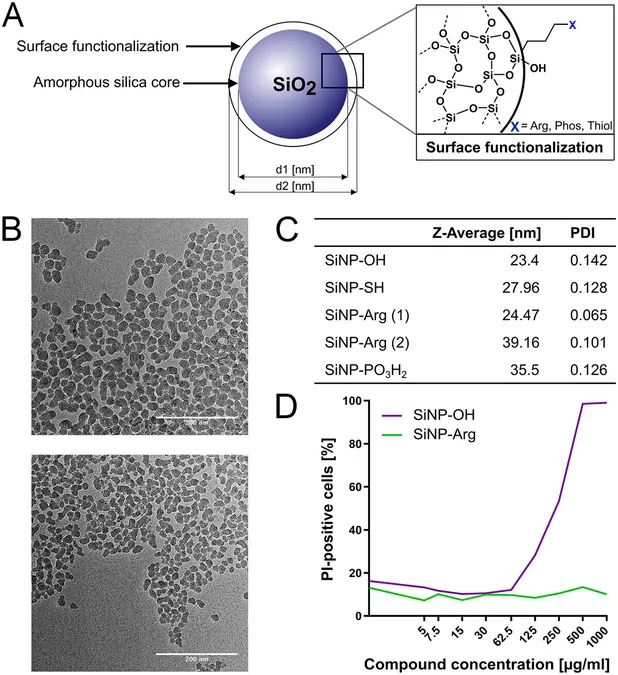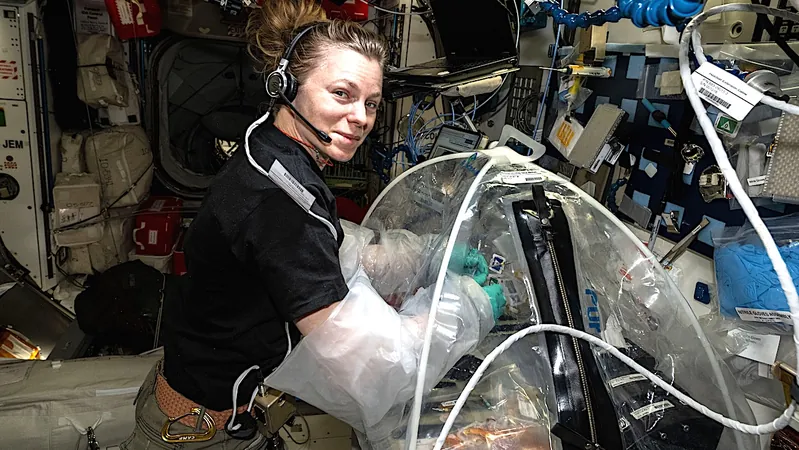
Revolutionary HPV Cancer Vaccine: How Nanoparticles Are Changing the Game!
2025-09-02
Author: Arjun
Breakthrough in HPV Cancer Treatment!
Exciting news emerges from the German Cancer Research Center (DKFZ) and Heidelberg University! A dynamic research team has pioneered a groundbreaking therapeutic vaccination concept aimed at deploying the immune system against HPV-related tumors. Imagine a world where cancer cells meet their match, all thanks to innovative silica nanoparticles!
Nanoparticles: Tiny Heroes in the Fight Against Cancer!
This fresh approach combines virus peptides with silica nanoparticles, demonstrating remarkable efficacy in triggering T-cell responses to target cancerous cells. In experiments with mice, the nanoparticle-based vaccine exhibited incredible potential, successfully suppressing HPV-related tumors either partially or completely!
Why HPV Is a Major Concern for Cancer!
Human papillomaviruses are the primary culprits behind cervical cancer and are significantly involved in head and neck cancers, among other malignancies. While preventive HPV vaccines have been successful in combating infections, a void remains for therapeutic options to tackle existing tumors. Until now!
The Science Behind the Vaccine!
What makes this new vaccine concept so unique? Co-led by Angelika Riemer, the research team harnesses the power of silica nanoparticles—known for their stability and versatility in medical applications. These nanoparticles are seamlessly coated for biocompatibility and loaded with specific viral protein segments designed to ignite the immune response.
How It Works: A Smart Strategy!
Once injected, these nanoparticles are taken up by antigen-presenting cells in the body. These specialized immune cells present viral epitopes which, in turn, activate cytotoxic T cells—those necessary sentinels that seek out and destroy cancer cells. Adding a powerful adjuvant enhances the vaccine’s effectiveness.
Promising Results in Humanized Mice!
In trials involving humanized mice—engineered to present the same epitopes as humans—the vaccination resulted in a significant activation of cytotoxic T cells. Remarkably, some of these mice exhibited complete suppression of existing HPV-positive tumors, leading to longer survival rates!
A Bright Future for Cancer Vaccines!
Riemer expressed optimism about the findings, noting, "These are encouraging results that confirm our decision to continue developing the nanoparticle vaccine system. Its versatility could extend beyond HPV-related cancers to target other tumors and infectious diseases in the future."
Global Impact: The Potential for Widespread Use!
Silica nanoparticles stand at the forefront of this revolutionary vaccination process. Their stability not only protects vaccine efficacy but also allows for easier storage and distribution—crucial for regions facing refrigeration challenges. As this exciting development continues, the dream of a world free from certain cancers might just be a step closer!



 Brasil (PT)
Brasil (PT)
 Canada (EN)
Canada (EN)
 Chile (ES)
Chile (ES)
 Česko (CS)
Česko (CS)
 대한민국 (KO)
대한민국 (KO)
 España (ES)
España (ES)
 France (FR)
France (FR)
 Hong Kong (EN)
Hong Kong (EN)
 Italia (IT)
Italia (IT)
 日本 (JA)
日本 (JA)
 Magyarország (HU)
Magyarország (HU)
 Norge (NO)
Norge (NO)
 Polska (PL)
Polska (PL)
 Schweiz (DE)
Schweiz (DE)
 Singapore (EN)
Singapore (EN)
 Sverige (SV)
Sverige (SV)
 Suomi (FI)
Suomi (FI)
 Türkiye (TR)
Türkiye (TR)
 الإمارات العربية المتحدة (AR)
الإمارات العربية المتحدة (AR)